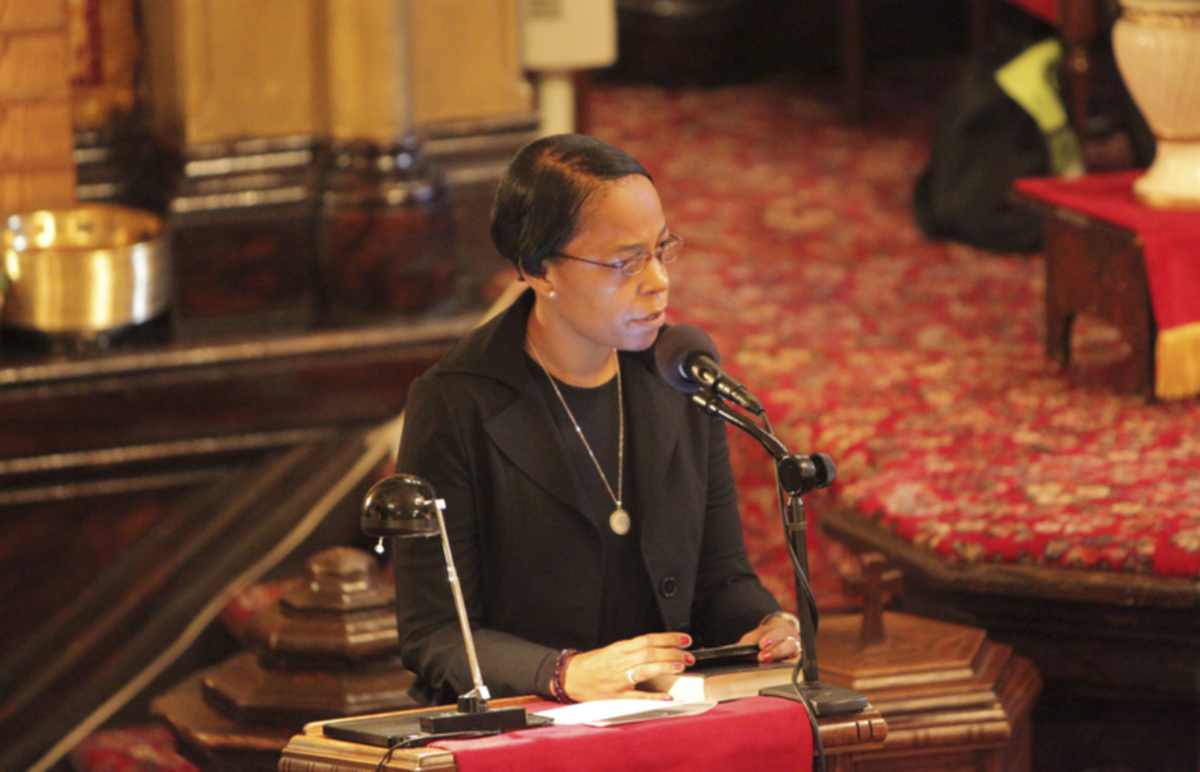Who Should Write Your Eulogy?
Delivering a eulogy is a great honor. It's important to choose the best person for the task.

Writing a eulogy can be challenging, especially if you are going to be speaking about a loved one, a lifelong friend or someone else near and dear to you. But if you do it all the time, it can be pretty easy. Ministers, priests, rabbis and other religious leaders deliver eulogies frequently. Sometimes they do it well, but sometimes they don’t.
After all, summing up someone’s life in a few short minutes isn’t easy. It takes a lot of thought, winnowing and revising. But if you’re doing the third eulogy of the week for someone you didn’t know or can’t remember, it’s pretty easy to pull some stock quotations and all-purpose anecdotes out of your hat and throw something together.
Sometimes the result is OK but not great, maybe even a little boring. We can all remember the priest who had to constantly glance down at his notes each time he mentioned Uncle Ed (and he still managed to call him “Edward” each time). Or there’s the minister who embarks on an all-purpose remembrance, pausing to say something like: “Now, I didn’t know Marvin so I can’t say for sure that he was an avid golfer but even so, I’m reminded of the time three gentlemen of a certain age set out for a day’s golfing and …”
I recently attended a funeral for the wife of a colleague. She had been an outstanding cook, dedicated social worker and diehard Washington Commanders fan but neither she nor her husband were regular churchgoers so they had let the funeral director hire a retired Baptist minister to officiate at the funeral.
All went well for the first few minutes as the pastor repeated what he had been told by the family. He then launched into what is generally called a fire-and-brimstone recitation, featuring graphic descriptions of salvation, damnation and so forth. This is, of course, perfectly appropriate for those of a fundamental bent but it lent something of a discordant air to the assembled mourners, who were mostly of the secular suburban persuasion.
“I’m glad Peg wasn’t here to hear that,” the husband later said.
Times have changed
Generational issues can also be a factor. A lot has changed since today’s older clergy started their careers. At a recent Long Island service, an elderly priest bemoaned the state of modern society, blaming it on “Obama and the homos,” a reference many found offensive but which did not apply directly to the deceased.
Sadly, such was not the case at a Michigan funeral. The priest presiding at the December 2018 funeral of Maison Hullibarger, 18, said that God would forgive the young man for taking his own life but emphasized that suicide was an act against God’s will.
“Our lives are not our own. They are not ours to do with as we please. God gave us life, and we are to be good stewards of that gift for as long as God permits,” said Father Don LaCuesta in his homily, according to an account in Angelus News. The parents were horrified and taken by surprise, since they had not told the priest that their son’s death had been self-inflicted.
Maison’s father, Jeff, said he approached the pulpit during the homily and asked LaCuesta to “please stop” talking about suicide but LaCuesta continued his homily, according to a lawsuit the family filed against the Archdiocese of Detroit. The parents said the priest’s comments caused them “irreperable harm and pain.”
A few last words
Who’s best to speak at the funeral or memorial you’re helping to arrange? If the deceased attended religious services regularly, a religious leader who knew him or her well would be an obvious — and quite possibly the best — choice. But if the deceased was not religious or did not often darken the sanctuary door, you may have to cast a wider net.
Often the answer lies within the family. While the next of kin may wish to say a few words, they may not feeling up to speaking for four or five minutes. But a grandchild, nephew, niece or sibling may be just what’s called for, especially if it is someone who knew the person well and is skilled at public speaking.
The deceased’s professional life may also offer a solution. Co-workers often have a treasure trove of insights and anecdotes about the departed — many of them possibly unknown to the family, thus providing a behind-the-scenes look into a previously unknown part of the deceased’s life.
A final word of advice: Once you have come up with the ideal person to do the honors, don’t be afraid to ask them. It is a great honor and privilege to eulogize a relative or colleague. You might think your husband’s boss’s would not even consider it or that your nephew who lives way across the country wouldn’t be able to take time away from his work to show up, but don’t bet on it. You just might be surprised.
